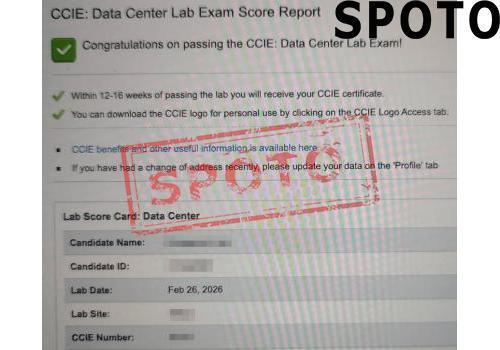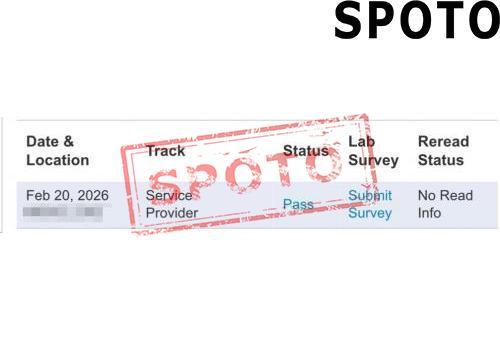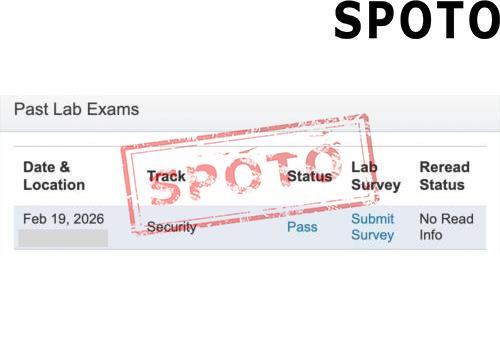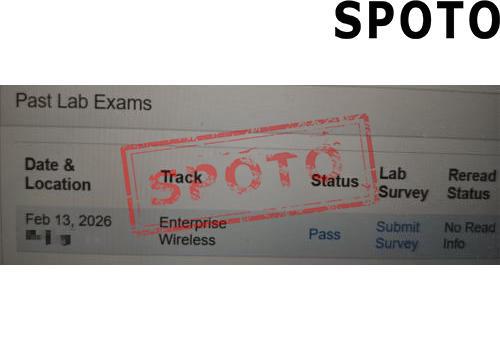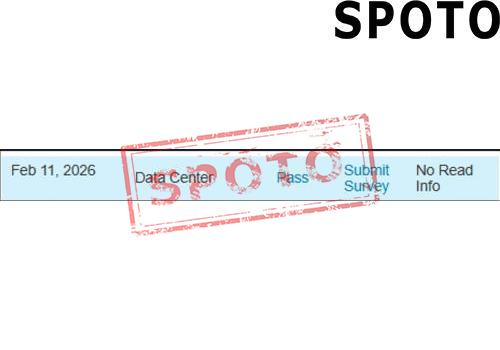
The Cisco Certified Internetwork Expert (CCIE) certification has long been among the networking world's most respected and sought-after credentials. Since its inception in the 1990s, the CCIE has symbolized the pinnacle of networking expertise. However, as the IT industry evolves rapidly, especially with the rise of cloud computing, automation, and software-defined networking (SDN), the question arises: Is the CCIE still relevant in 2026?
In this article, we'll explore whether the CCIE certification remains a worthwhile investment for IT professionals looking to advance their careers in 2026 and beyond.
1. The Evolution of Networking and CCIE
Networking has undergone significant transformations over the past decade. With the introduction of cloud technologies, artificial intelligence, and automation, networking has become more complex and integrated with other IT domains. But Cisco has been quick to adapt to these changes, continuously updating its CCIE program to reflect the latest trends and technologies.
In 2026, the CCIE certification will still focus on core networking principles while incorporating cutting-edge technologies, such as:
- Software-Defined Networking (SDN): With the growing adoption of SDN and network automation tools, Cisco has updated its CCIE exams to include SDN concepts, making the certification more relevant than ever.
- Cloud and Hybrid Infrastructure: As businesses continue to migrate to the cloud, CCIE-certified professionals are expected to have expertise in both traditional on-premises setups and hybrid/cloud-based environments.
- Automation and Orchestration: Automation tools such as Ansible, Python, and Cisco ACI (Application Centric Infrastructure) are becoming integral to modern network management. CCIE certification now emphasizes automation, allowing certified professionals to manage and scale complex networks efficiently.
Thus, the CCIE certification remains a forward-looking program that stays aligned with the rapidly evolving tech landscape.
2. Job Market Demand for CCIE Professionals
One of the key reasons why the CCIE certification has remained highly valuable is its continued demand in the job market. In 2026, IT and networking professionals with a CCIE certification are still highly sought after for senior-level positions, such as:
- Network Architects
- Network Engineers
- Infrastructure Managers
- Cloud Network Engineers
According to several industry surveys, companies continue to prioritize highly skilled network engineers to support their increasing reliance on hybrid and multi-cloud environments, complex security configurations, and large-scale infrastructure deployments. These roles require not only an in-depth understanding of traditional networking concepts but also expertise in automation, security, and cloud integration—areas that CCIE certifications now cover extensively.
For example, Cisco's CCIE Data Center and CCIE Enterprise Infrastructure exams reflect the growing trend toward cloud-native and software-driven networking environments. This trend ensures that CCIE certification remains relevant for professionals looking to secure high-paying, advanced positions in the networking field.
3. How the CCIE Helps Differentiate You in a Competitive Market
While many networking certifications are available, the CCIE stands out for its rigorous and comprehensive nature. Passing the CCIE exams—particularly the lab exam—requires a high level of expertise and practical knowledge. This makes the CCIE one of the most difficult and respected certifications to obtain, which in turn makes it a valuable differentiator in a competitive job market.
In 2026, the technology landscape is more competitive than ever, and having a CCIE credential can set you apart from others vying for top-tier roles. The certification is recognized globally as an indicator of deep technical expertise, and for those seeking positions in specialized fields like data centers, security, or automation, the CCIE remains one of the most sought-after qualifications.
The Benefits of a CCIE Certification:
- Higher Salary Potential: CCIE professionals consistently command higher salaries compared to their peers without the certification. The prestige and expertise associated with the CCIE often translate into lucrative compensation packages.
- Career Advancement: The CCIE provides career mobility, enabling professionals to move into more senior and specialized roles, particularly in enterprise-level IT and large-scale networking environments.
- Recognition in the Industry: The CCIE is a globally recognized certification that signals to employers, clients, and peers that you have attained the highest level of networking knowledge.
4. Is the CCIE Too Hard to Achieve?
One common criticism of the CCIE certification is that it’s too difficult and requires years of preparation. The CCIE exams, especially the lab exam, are widely known for their challenging nature. However, the difficulty of the certification should be viewed as a testament to its value.
In 2026, the CCIE study process will still require a significant commitment of time and effort, but the resources available to candidates have improved drastically. There are now more online courses, practice labs, study groups, and platforms that offer realistic simulation exams and expert guidance, making the preparation process more structured and accessible.
For example, cloud-based platforms allow candidates to practice lab scenarios at their own pace, and professional coaching can help identify gaps in knowledge. This has made the path to certification less daunting and more achievable, even for those with busy work schedules.
5. The Future of the CCIE and Networking Certifications
As we move towards 2026, networking certifications will continue to evolve to meet new technological demands. Cisco is well-positioned to remain a leader in the networking certification space, and the CCIE will likely continue to be the gold standard for network professionals. However, the industry is also seeing the rise of other certifications that complement or compete with CCIE, such as:
- Cloud certifications from AWS, Google Cloud, and Microsoft Azure
- Security certifications like the Certified Information Systems Security Professional (CISSP)
- Automation and DevOps certifications for network automation professionals
While these certifications address specialized skills, the CCIE remains the most comprehensive and advanced networking certification. For those focused on deepening their knowledge and expertise in enterprise-level networking and data center infrastructure, the CCIE remains unparalleled.
6. Alternatives and Complementary Certifications
For those wondering whether they should pursue the CCIE in 2026 or consider alternatives, it's worth noting that CCIE can be complemented with certifications in cloud computing, cybersecurity, or automation. By combining the CCIE with other certifications, professionals can broaden their skill sets to match the evolving demands of modern IT environments. This combination of skills will make you an even more valuable asset to employers.
For example:
- Pairing the CCIE with AWS Certified Solutions Architect or Google Professional Cloud Architect can help networking professionals transition into cloud networking roles.
- Adding a Certified Kubernetes Administrator certification to your CCIE can make you an expert in managing complex, cloud-native network infrastructures.
Conclusion
In 2026, the CCIE certification continues to be a valuable asset for networking professionals. Despite the rapid evolution of technology, Cisco has kept the CCIE relevant by adapting the exams to incorporate the latest industry trends such as SDN, cloud networking, and automation. The job market still demands high-level networking skills, and the CCIE provides a clear path to well-paying, senior-level positions.
For IT professionals looking to make a significant impact in the networking field, pursuing a CCIE in 2026 remains an excellent investment—both in terms of career opportunities and personal growth.

